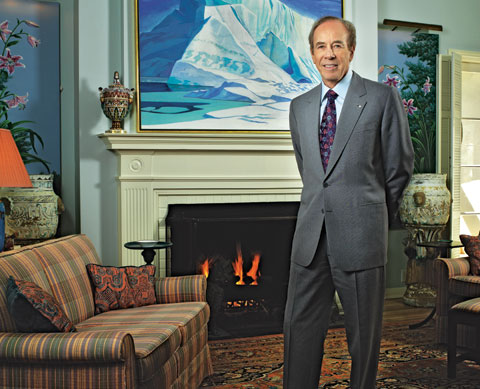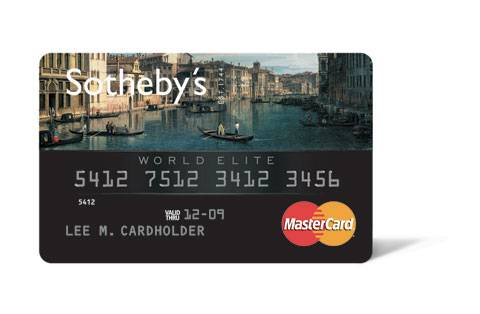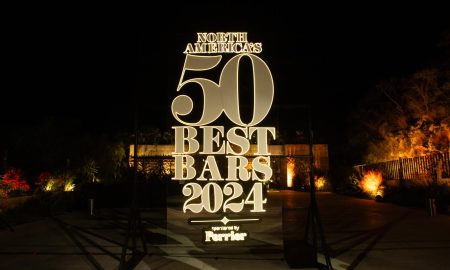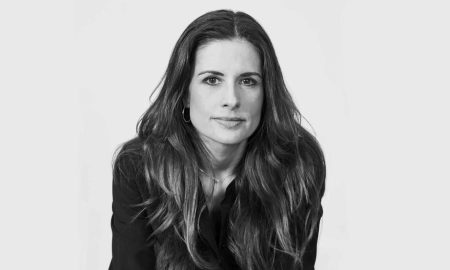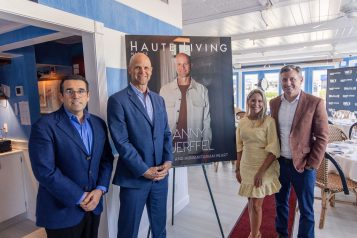When he’s not raising the bar of luxury and motivating his employees, Sharp can be found at his Palm Springs home, dedicating time to his wife and the philanthropy that he, like a true gentleman, never flaunts.
It’s 7:45 p.m. on a crisp Paris evening as a shiny black Mercedes pulls out of the George V en route to the Elysée Palace. It’s 8:45 p.m. in the enchanting ancient city of Damascus, as a mother-of-pearl table is being polished and perfected for the foreign delegation that is soon to be received at the city’s first luxury hotel. It’s 11:45 a.m. high atop the peaks of Whistler Blackcomb as the latest crop of young Forbes billionaires are converging for a ski weekend at the Four Seasons Resort Whistler.
Meanwhile, a floor plan for the new Four Season Dubai has just arrived at the Toronto office of Isadore Sharp. The man who is lovingly referred to as “Issy” by hundreds of adoring employees (the Four Seasons is, year after year, voted the best company to work for) is actively involved in every facet of his business, a luxury lodging phenomenon that needs little introduction and inspires infinite praise and a legion of loyal followers, from the heart of New York City to Marunouchi. “I still approve all the plans and concepts and aesthetics of all the hotels. What you see at Four Seasons is my input and dealing with many, many creative people who truly think out of the box, but it’s consistent, because it always comes back to me for final approval,” he explains with an infectious enthusiasm.
Born to immigrant parents, Sharp’s earliest childhood memories are of summers spent working as a builder with his father, Max. He went on to study architecture at Ryerson University and embarked upon his first hotel project in 1961. The Four Seasons legend began as a motor hotel on Toronto’s Jarvis Street with an unlikely initial brand concept. “We first came up with the name ‘Thunderbird,’ but we couldn’t get it because somebody had already registered that name. So we were sitting around trying to come up with another name, and were going through the telephone book trying to get some ideas. My brother-in-law, who was the world traveler, was talking about a place that he had been to in Germany which translated to English as the Four Seasons, and that was the extent of our market research,” recalls Sharp.
But Four Seasons is the name that stuck, and, within a decade, became synonymous with luxury and comfort, later spiralling into a worldwide phenomenon respected by heads of state, celebrities, and tycoons alike. Combining bespoke service with the utmost in luxury offerings, Four Seasons set the standard for five-star luxury-a standard that was later adapted by hotel chains all over the world. At the core of the brand’s success was a true sense of place, established by a holistic ambiance complete with furnishings and art indigenous to each hotel’s locale, along with an almost 90 percent ratio of local staff who thrived on their pride of place. “The one thing that the customer treasures the most is the consistent quality of sincere service, and that cannot be copied. This comes from a culture that gives people a reason to do their job in a way that makes the quality of our service different,” Sharp explains. The Four Seasons is famous for spoiling its dedicated employees, and for its impressively low employee turnover rate. But the true essence of the exemplary service at Four Seasons stems from the Golden Rule-an idea that employees should extend the same dedication and service that they, themselves, would expect at a hotel. “Brands hold out a promise to the buying public. And as long as you meet that expectation, you build up a loyalty and people buy into it because they know what to expect.” And it is for this reason that loyal Four Seasons fans will be as comfortable in a converted prison in Istanbul as they are on the distant shores of Koh Samui.
Despite his obvious success, Sharp, always the humble hero, will never claim to have mastered the art of being a hotelier. He attributes his pioneering effect on the luxury hospitality industry to his builder’s background and ability to see service through the eyes of the customer. “I am a builder by trade. I didn’t know anything about the hotel business, so when I was thinking about things, I was thinking about them through the customer’s perspective. We were the fist company to put shampoo in the bathrooms, because I grew up with three sisters, and knew women would never wash their hair with soap, so it just made common sense to put little packages of shampoo in the bathrooms.” This is but one of a host of amenities coined by Sharp and the Four Seasons that travelers have come to expect of the luxury hotel industry. Others include telephones in bathrooms, the idea of a luxury bathroom with full-size cotton bath towels, bespoke beds and bedding, soundproof rooms, 24-hour room service, overnight laundry, and non-smoking floors. “Stanley Marcus of Neiman Marcus said in a quote once that we had the softest toilet paper he’s ever used, and anyone who is thinking of that small detail must be thinking of a lot of other good things,” recalls Sharp.
But beyond this string of firsts is a one of a kind philosophy spawned from Sharp’s true dedication and devotion to teamwork, perhaps a remnant of a lifetime of sports. “I was quite irresponsible as a youth. My time was spent playing sports, and my life revolved around sports. Playing sports certainly had an effect on me, because it teaches you how to play with team players. It’s a very humbling experience winning and losing, and teaches you not to lose heart, and that there’s nothing wrong with trying and failing. Seeing the company as a team has always been part of my direction in terms of running the company. It’s not what one can do; it’s what we can get many to do. And I think recognizing the efforts of many is what makes a team a success,” recalls Sharp, alluding to the Super Bowl. “The first year the Patriots were in the Super Bowl, they were the underdogs. When they introduced the other team, each player came out separately, bigger than life on the screen, and the coach came out after them. When they introduced the New England team, they all ran out together and I thought, ‘There’s a brilliant coach. There is a man who knows how to get the best out of his players.’ And they went on to win the Super Bowl. So I use that as a metaphor when talking to my staff, because that is what it’s all about.”
When he’s not raising the bar of luxury and motivating his employees, Sharp can be found at his Palm Springs home, dedicating time to his wife and the philanthropy that he, like a true gentleman, never flaunts. “You grow up and realize that you’re fortunate to have succeeded, and that it is your responsibility to give back. It’s a way of life and a natural way of saying that our good fortune should be shared in the best way we can. It’s a part of my upbringing-my parents were very poor, but they gave of themselves, always wanting to help others, and I think you learn, not by what your parents tell you, but by what your parents do.” Sharp was a founder of the Terry Fox Run, a worldwide event that has raised more than $500 million. Furthering the efforts of cancer research strikes a special chord with Sharp, who lost his youngest son, Christopher, to melanoma. “My fourth son really wanted to be in the hotel business,” recalls Sharp, with the palpable sorrow of a dedicated parent still impacted by the loss of a child.
But, like a true sportsman, Sharp is never one to dwell on his losses, which, along with his unfading smile, is his single most commendable quality. And it is this quality that has fuelled his success. When asked to identify his greatest mentor, Sharp says, “Those who devote themselves to a higher cause without asking any rewards. They are very principled people, and it is those kinds of people that I have always looked up to. They are willing to put their own lives on the line for what they believe in.”
Now co-owned by Sharp, Bill Gates and Saudi Arabia’s Prince Al-Walid bin Talal, Four Seasons plans to expand in Mumbai, Dubai, Florence, Seattle, and a host of other exotic destinations, eventually raising its winning worldwide portfolio from 75 to 106.







